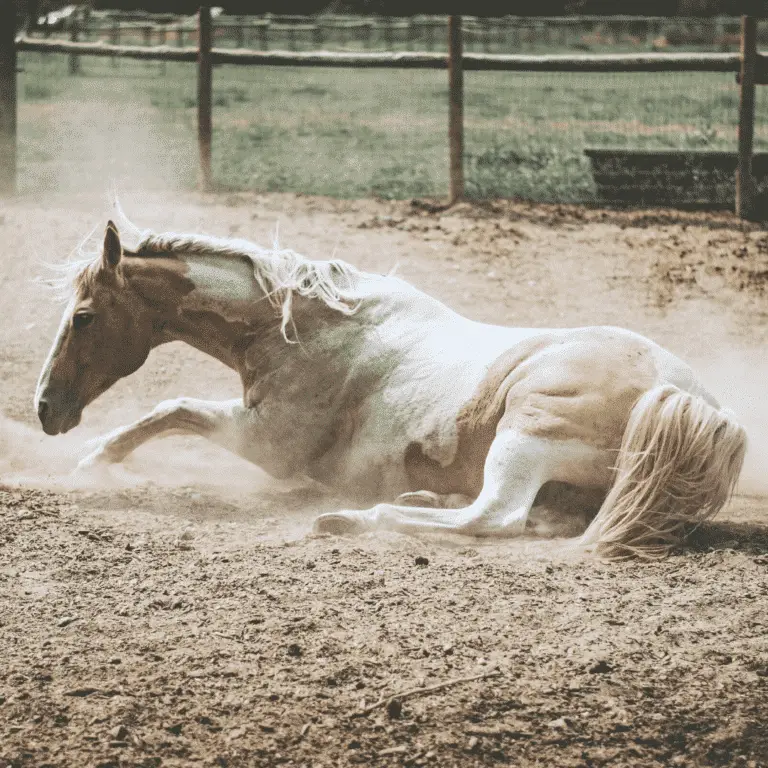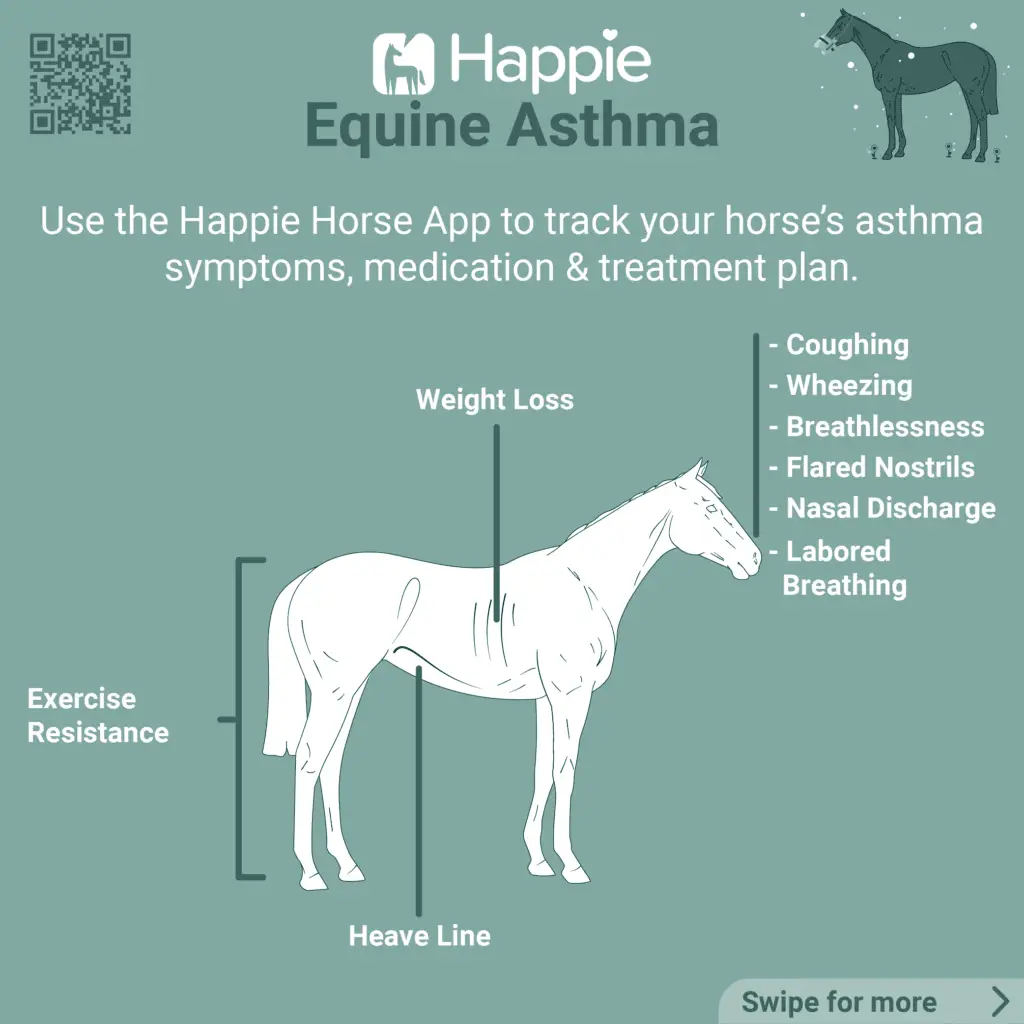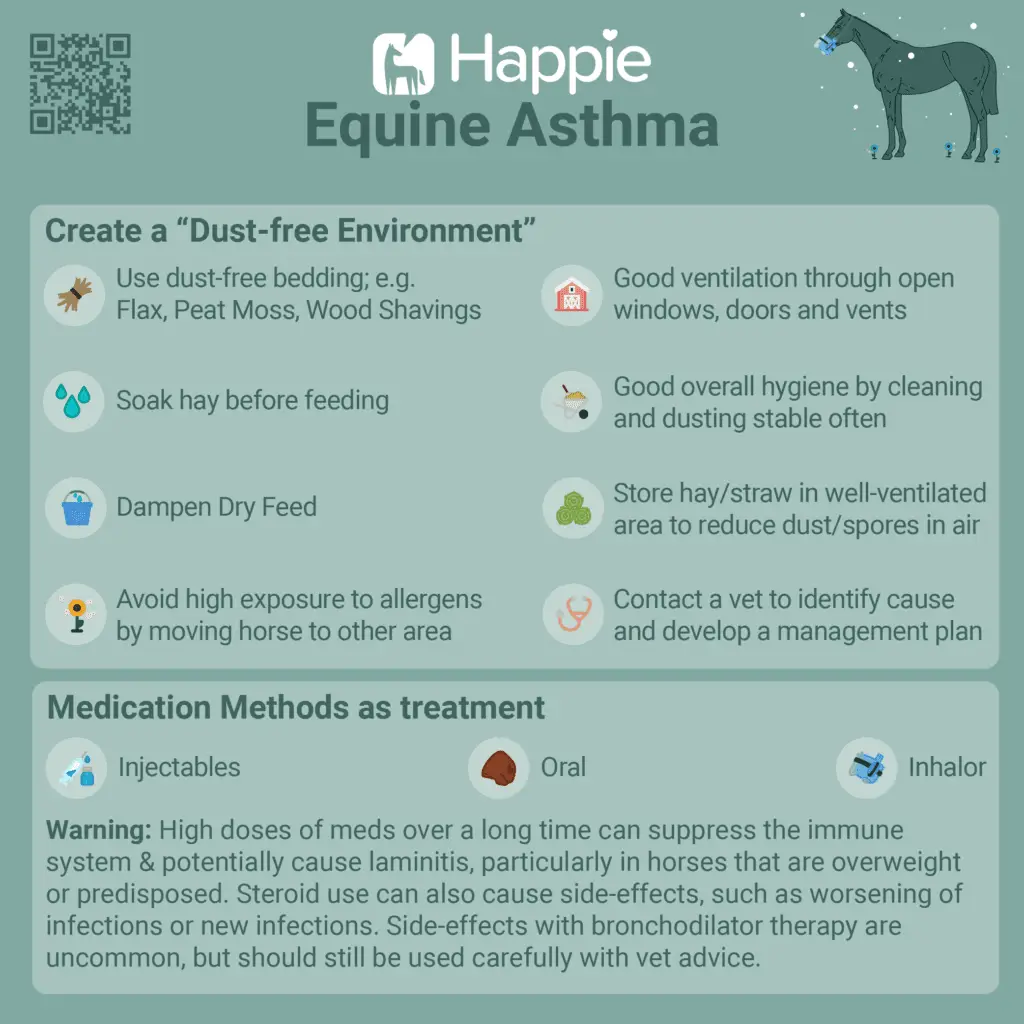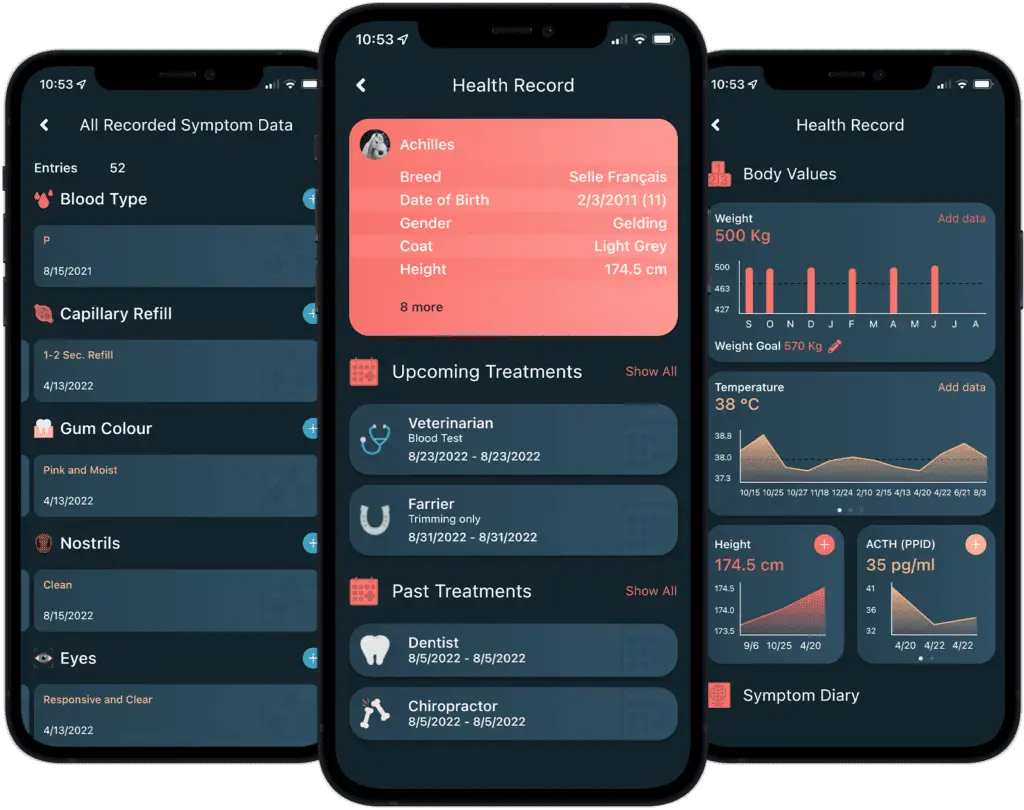
The Equine Colic
Expert Advice: This article was written by Dr. Pedro Penha Garcia, a veterinarian with 10+ years of experience. What is an Equine Colic? A Colic is something no horse owner wants to face, but if you have horses, you’ll likely

Equine asthma, also known as “heaves” or chronic obstructive bronchitis, is a common condition in horses. It is a chronic respiratory disease caused by inflammation of the airways.
Horses with asthma show a variety of symptoms that may indicate respiratory problems. Some of the most common symptoms are:


Be sure to have your horse examined by a veterinarian – an expert can definitely give you advice and support you and your horse, especially with medication.
It is important that the medication and dosage is prescribed by your vet as each horse’s individual needs can be different. An accurate diagnosis and regular veterinary care are crucial for successful treatment of equine asthma.
But you can also help your horse. For example, by ensuring a dust-free environment.
A dust-free environment can bring your asthmatic horse a lot of relief.
Here is a checklist of things you can do:


Expert Advice: This article was written by Dr. Pedro Penha Garcia, a veterinarian with 10+ years of experience. What is an Equine Colic? A Colic is something no horse owner wants to face, but if you have horses, you’ll likely

Just as it is with humans, the horse’s skin is the largest organ of the body. However, this blog post is dedicated to the organs that we cannot see from the outside. Let’s take a look inside the horse and

Constant Free Movement in Herds Can Help Against Obesity We always talk about how feed can affect a horse’s weight but feed is not the only thing that can and should be considered when helping a horse lose weight sustainably.

Temperature, Pulse and Respiration – Indicators of Your Horse’s Health Early detection of fever, respiratory abnormalities or a too low/too high pulse can save your horse’s life. The following will elaborate on how to take your horse’s temperature, pulse and

Here’s how you can help your horse When the days start to get longer and spring arrives, we throw our thick winter coats into the basement and wait for the warmer weather. While we are ready for the change in

Going barefoot refers to the practice of keeping horses without horseshoes, allowing them to walk and run on natural surfaces with their hooves unprotected by metal shoes. This practice is based on the idea that horses evolved to have hooves